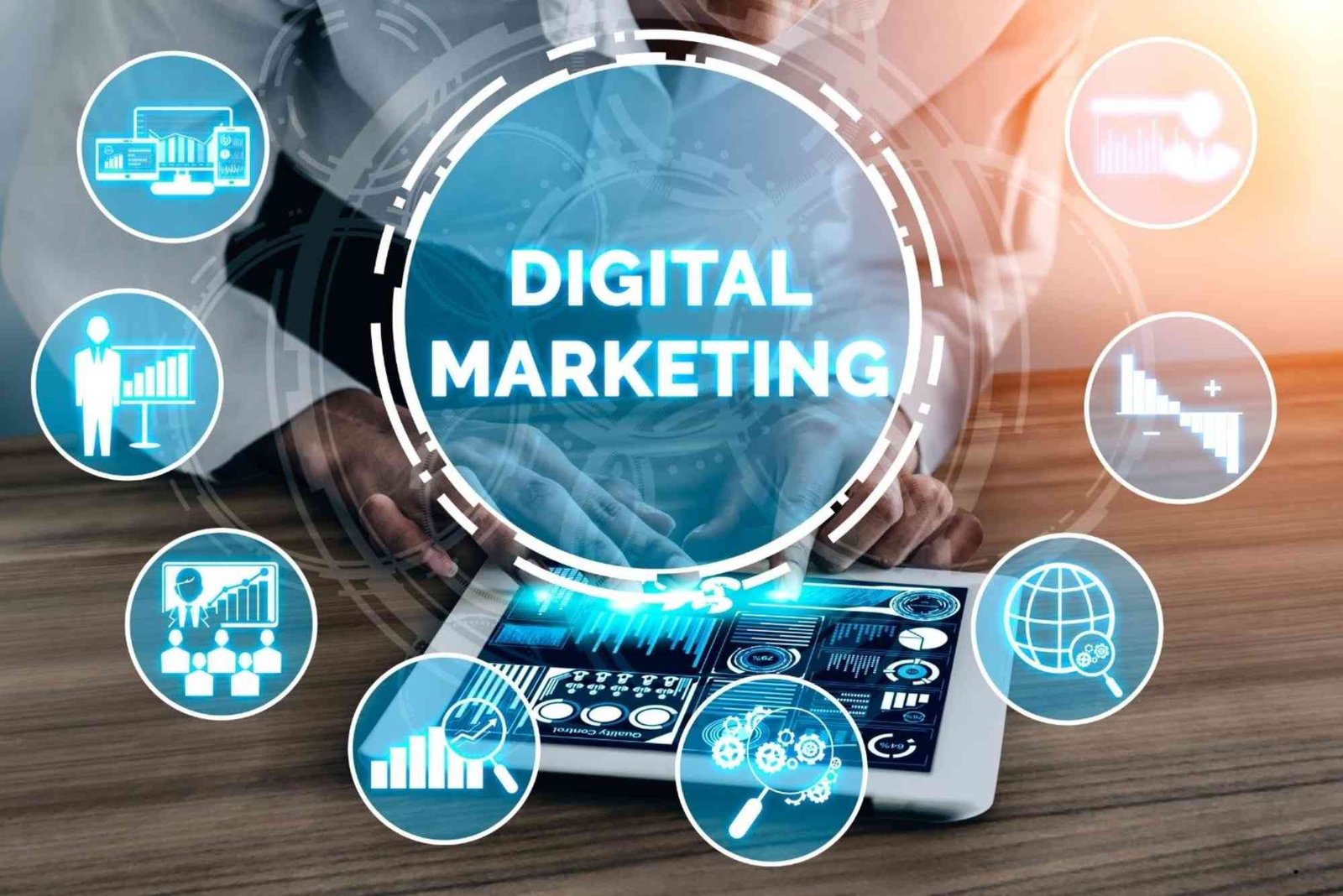Introduction
In the fast-paced world of online business, understanding digital marketing channels is essential for brands aiming to reach their target audience effectively. From social media and SEO to email campaigns and paid advertising, digital marketing channels shape how consumers connect with brands in the digital era. Whether you’re a small business owner or a marketing professional, knowing how these channels work helps you create better strategies that drive real results.
To dive deeper into the topic, you can also explore What Are Digital Marketing Channels for a foundational understanding of how different platforms contribute to online success.
What Are Digital Marketing Channels?
Digital marketing channels are online platforms or methods businesses use to communicate with potential customers. These channels include websites, search engines, social media networks, emails, and paid ads. Each serves a specific purpose and reaches audiences at different stages of the buyer journey.
For instance, SEO drives organic traffic, social media builds brand awareness, and email nurtures leads into customers. By combining multiple channels strategically, brands can amplify their reach and improve conversion rates.
Importance of Digital Marketing Channels
Understanding digital marketing channels allows businesses to:
-
Reach a wider audience globally.
-
Engage with customers directly through personalized content.
-
Track performance using analytics and adjust strategies accordingly.
-
Optimize marketing budgets by focusing on high-performing channels.
In a competitive market, using digital marketing channels efficiently helps build brand trust and long-term customer loyalty.
Key Types of Digital Marketing Channels
Search Engine Optimization (SEO)
SEO is one of the most powerful digital marketing channels. It helps your website rank higher on search engines like Google. Optimizing keywords, improving site speed, and creating valuable content enhance visibility and organic reach.
Businesses that invest in SEO attract long-term traffic without heavy advertising costs. However, SEO demands patience, consistency, and understanding of search intent.
Content Marketing
Content marketing focuses on creating valuable content that informs, entertains, and inspires. Blog posts, videos, infographics, and eBooks fall under this channel.
By delivering value-driven content, brands establish authority and build trust. The key is consistency and relevance. Every article or video should solve a real problem or provide insight related to your niche.
For example, Related Marketing & Advertising article shows how creative storytelling can engage audiences and enhance brand personality — an essential part of content strategy.
Social Media Marketing
Social media platforms such as Facebook, Instagram, LinkedIn, and TikTok are vital for brand engagement. They allow businesses to communicate directly with followers, run targeted ads, and build a community around their products.
Consistency in posting and authentic engagement with followers help strengthen brand loyalty. Additionally, paid campaigns can increase reach and boost conversions when aligned with your overall digital strategy.
Email Marketing
Email marketing remains one of the most cost-effective and personalized digital marketing channels. It helps nurture relationships by sending tailored messages, updates, or offers directly to subscribers.
Segmenting your audience and crafting personalized emails lead to higher open and conversion rates. A well-planned email campaign can guide potential customers through the sales funnel effectively.
Pay-Per-Click (PPC) Advertising
PPC advertising allows you to display ads on search engines or social media platforms, paying only when someone clicks your ad. Google Ads and Meta Ads are common examples.
This channel delivers quick results, ideal for product launches or promotional campaigns. However, it requires continuous optimization to prevent overspending and maximize ROI.
Affiliate Marketing
Affiliate marketing involves partnering with influencers or affiliates who promote your products and earn commissions on sales. It’s a cost-effective channel that leverages the power of word-of-mouth and credibility.
By selecting the right affiliates who align with your brand, you can reach new audiences organically and increase sales without massive upfront costs.
Influencer Marketing
Influencers have become a trusted voice in digital marketing. Collaborating with them helps brands tap into niche audiences that trust their recommendations.
Micro-influencers, in particular, often have higher engagement rates, making them ideal for targeted campaigns.
Mobile Marketing
With mobile devices dominating online usage, optimizing marketing strategies for smartphones is critical. Mobile marketing includes SMS campaigns, app-based ads, and mobile-optimized content.
A seamless mobile experience ensures users stay engaged and enhances conversion opportunities.
How to Choose the Right Digital Marketing Channels
Selecting the best digital marketing channels depends on your business goals, audience, and budget.
Start by defining your target audience — who they are, where they spend time online, and how they make purchasing decisions.
Then align your marketing objectives with the appropriate channels. For instance, if your goal is brand awareness, focus on social media and content marketing. If you aim for immediate sales, PPC and email marketing can deliver faster results.
Integrating Multiple Channels for Better Results
Relying on one channel limits growth. A multi-channel approach ensures better coverage and consistent brand presence.
For example, an SEO-optimized blog can drive organic traffic, while social media shares amplify its reach. Email newsletters can further nurture readers into loyal customers. Each channel complements the other, creating a cohesive ecosystem.
Additionally, leveraging analytics tools helps track which channels drive the most engagement and conversions. Regularly analyzing this data ensures you focus efforts where they matter most.
The Future of Digital Marketing Channels
The landscape of digital marketing is constantly evolving. Artificial intelligence, voice search, and augmented reality are shaping new ways to connect with audiences.
Marketers must stay adaptable, continuously learning and testing innovative tools to stay ahead. To deepen your understanding, you can Learn more about emerging trends and academic insights in digital marketing.
Common Mistakes to Avoid in Digital Marketing Channels
-
Neglecting mobile optimization: A poor mobile experience reduces engagement.
-
Ignoring analytics: Without data tracking, you can’t measure or improve performance.
-
Overusing automation: While automation saves time, too much of it can make communication feel robotic.
-
Lack of content strategy: Publishing without a clear purpose leads to inconsistent branding.
By avoiding these pitfalls, you can ensure a balanced, effective marketing strategy that resonates with your target audience.
FAQs
What are the main digital marketing channels?
The main channels include SEO, content marketing, social media, email marketing, PPC, affiliate marketing, and influencer marketing.
Which digital marketing channel is most effective?
The most effective channel depends on your business goals and audience. SEO and content marketing drive long-term growth, while PPC and email marketing provide quick results.
How can I combine digital marketing channels?
Integrate channels by aligning messaging, sharing data insights, and creating cross-promotional content. For instance, promote blog posts on social media and email newsletters.
What is the difference between online and offline marketing channels?
Online channels operate through the internet, such as websites and social media, while offline marketing includes traditional methods like print ads and billboards.
Why is understanding digital marketing channels important?
Understanding digital marketing channels helps you allocate resources effectively, reach the right audience, and improve ROI.
Understanding digital marketing channels is the cornerstone of modern business success. Each channel offers unique advantages, and combining them strategically can unlock unlimited potential.
Whether you’re optimizing for search engines, crafting engaging content, or running targeted ads, the goal remains the same — connecting meaningfully with your audience.
Start exploring these channels today to create an impactful strategy that drives growth, visibility, and customer loyalty.







